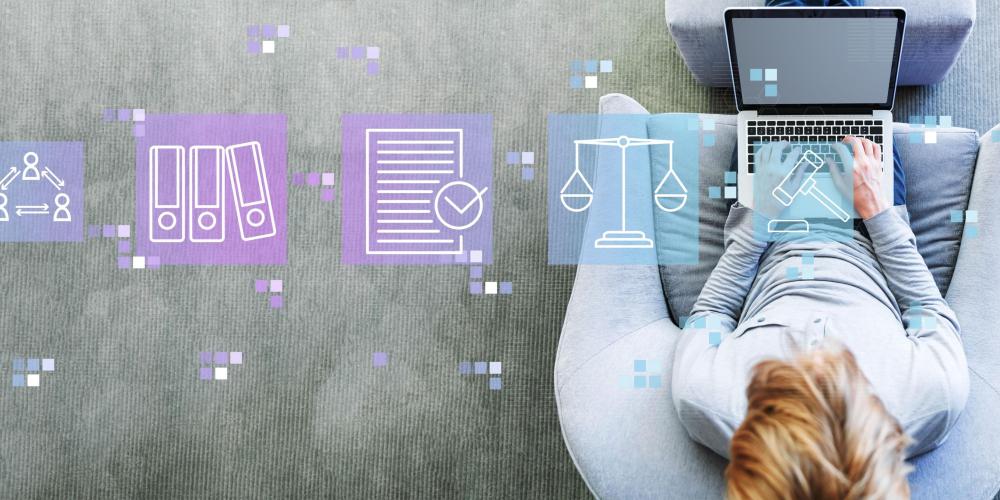
Key questions at stake
This Conference deals with questions such as: Will software systems give judgment in courts? What about big publishers selling the algorithms that enable legal search? Should we write new legislation in computer code?
These questions involve the design and development of so-called ‘legal tech’: ICT systems that are integrated in legal practice. Law firms are now using ‘legal intelligence’ to find relevant case law or legislation. Some courts are beginning to use predictive software to handle their case backlog. Legislatures are considering improving the process of law-making by means of computer code. All this inevitably affects legal protection and the checks and balances of the rule of law. Though these systems are often sold under the heading of ‘being more efficient’ or even ‘more objective (and thus fair)’ than human lawyers, this cannot be taken for granted.
CRCL22 Conference
The Conference on ‘Computational Law on Edge’ is the first of a new series of conferences, named CRCL, which stands for ‘Cross-disciplinary Research in Computational Law’. The conference addresses the key questions at stake, bringing together lawyers, computer scientists (CS) and scholars in social science and the humanities (SSH) to investigate the use of ‘legal techs’, see the conference program here.
Global thought leaders in law and computer science will share their thoughts in their keynotes: Virginia Dignum, Emily M. Bender, Frank Pasquale and our own Mireille Hildebrandt (PI of the ERC ADG project).
Next to these keynotes, nine papers will be discussed that have been selected for presentation at the conference after double-blind peer review. Each paper gets full attention for 45 minutes: spearheaded by the authors, followed by a replier from another discipline and by an in-depth interaction with the audience (both online and in person). This should give rise to an informed and animated discussion, based on everyone having read the papers in advance.
The COHUBICOL project
The Conference is one of the outputs of the ERC ADG project of VUB Professor Mireille Hildebrandt on ‘Counting as a human being in the era of computational law’. This project targets the questions raised above at the foundational level. The aim of the project is to investigate how ‘legal tech’ may change the nature of law and the rule of law and how legal protection can be safeguarded or even reinvented, based on a better understanding of what these technologies can and cannot do.
Online tool: a Typology of legal techs
In the course of their research, the COHUBICOL research team has developed an online tool to map, compare and assess ‘legal techs’. This Typology of legal techs will help lawyers to decide on investing in e.g. a legal search engine or in predictive software and it will help computer scientists to better understand what law requires in terms of automation support.
The Typology tool will be launched and made public on 3 November, during first International CRCL Conference at VUB - it will be made available via the website of the COHUBICOL project, see here. The Typology website was developed by postdoctoral researcher Laurence Diver (a former webdeveloper) in close harmony with the other members of the team, thus the project practices what it preaches: making sure that that design choices align with the content.
CRCL Journal
The Conference is co-organised with the online Journal on ‘Cross-disciplinary Research in Computational Law’, where the Conference papers will be submitted. The Journal again brings together scientific research in LAW, CS and SSH. Its format inspired that of the Conference: after double-blind peer review, if a paper is accepted, a replier is invited from ‘the other’ discipline to provide succinct feedback to which the author can respond, again with a short and crisp final word. This way, the Journal engages in a genuine cross-disciplinary conversation that should inform decision making in legal practice. I should also enable the study of ‘legal techs’ from the perspective of law, legal philosophy, philosophy of technology and the political economy of the so-called ‘legal services market’.
Registration for online attendance of the Conference is still open until 31 October (in person registration is no longer possible).